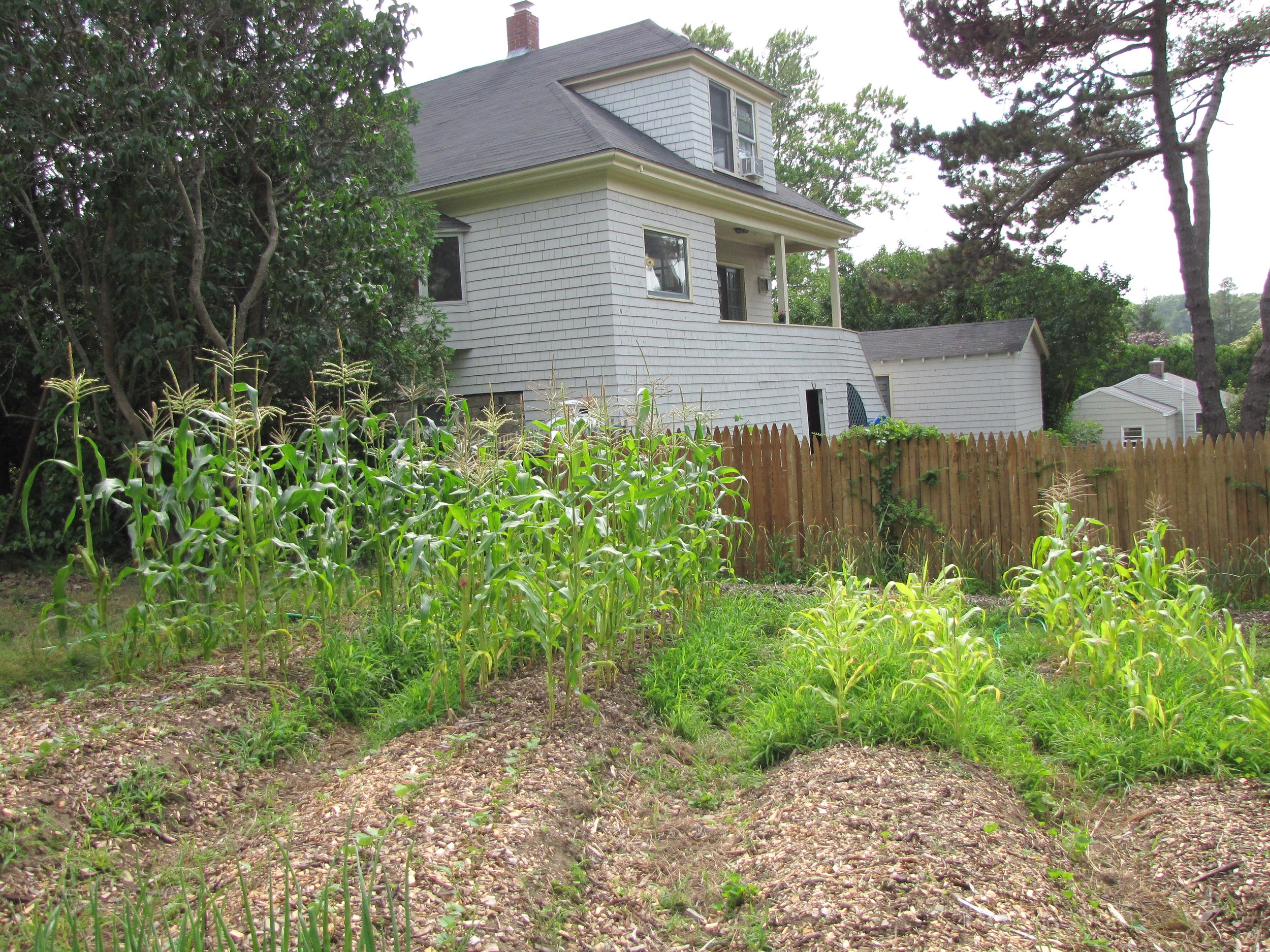Suburban Garden Study in South Portland Maine
The Living Soil Network recently completed a controlled scientific study where depleted, suburban soil was transformed into healthy, fertile soil in one calendar year. What makes this study unique is that only a small amount of compost was used. No organic matter or fertilizers were applied. The approach of the Living Soil Network was to repeatedly inoculate the soil with beneficial microbes, thus establishing a living soil ecosystem. We planted three different crops: peas, onions, and corn. These three crops were grown in two treatment rows, and in two adjacent and identical control rows (where no compost or microbes were added). Both the treatment and control rows had three successive plantings of cover crops before the vegetables were planted.
The results of this study were dramatic. The treatment rows of onions produced 40 lbs, while the control rows produced only 3 lbs. The treatment rows of corn produced 53 ears and the control rows produced only 3 ears. Even more amazing were the results from the soil chemistry tests performed before planting and after harvesting. In general, the available soil nutrients in the treatment rows increased after harvesting and the available soil nutrients in the control rows decreased after harvesting.
This study indicates that the addition of soil microbes alone are enough to transform lifeless dirt into fertile soil in one growing season. In other words, contrary to the conventional wisdom, large amounts of organic matter are not necessary.
To read the entire study or to just see the photos click on Suburban Garden Study

